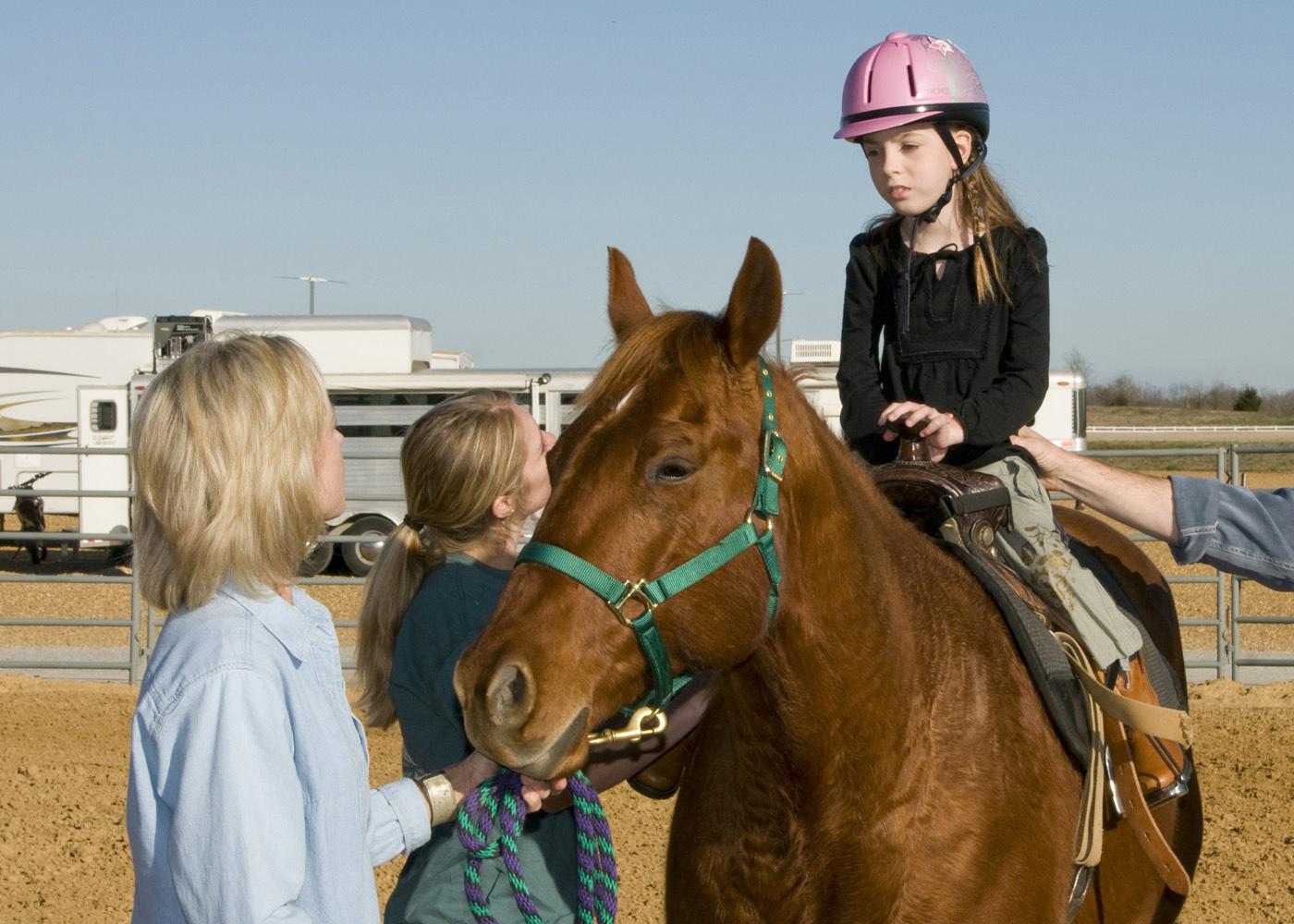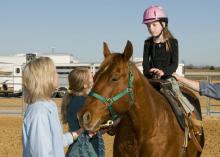Information Possibly Outdated
The information presented on this page was originally released on February 19, 2009. It may not be outdated, but please search our site for more current information. If you plan to quote or reference this information in a publication, please check with the Extension specialist or author before proceeding.
Riding therapy program inspires generous parents
MISSISSIPPI STATE -- Tommy and Brenda Howard of Columbus could see how much the spring and fall sessions of Mississippi State University’s 4-H therapeutic riding program helped their daughter, so they made a donation to help make the program a year-round option.
The Howards are giving $300,000 to MSU's 4-H TEAM, or Therapeutic Equine Activity Member, program. Their funding will help establish the Elizabeth A. Howard Therapeutic Activity Center, a covered arena behind the Mossy Oak Mall in West Point. Bryan Farms and Jimmy Bryan donated the land to the Mississippi 4-H Foundation in 2000.
For several years, the Howards’ daughter, Elizabeth, has taken part in the TEAM program, which is offered seven weeks each spring and fall at the Mississippi Horse Park. The Howards believe their daughter, who was born with cerebral palsy in 2000, has benefited from the program.
“We definitely can see how the riding has strengthened her core. It also has improved her confidence level,” her father said.
Mary Riley, coordinator for Mississippi States 4-H therapeutic riding program, said construction will begin on the West Point facility this spring and should be completed by the end of summer. Mississippi State 4-H TEAM is nationally accredited by the North American Riding for the Handicapped Association through the Premier Accredited Center Program.
“Therapeutic riding is a specialized equine activity that provides physical, emotional and psychological benefits to people with cognitive and physical disabilities,” Riley said. “Trained instructors provide carefully planned activities developed by a health professional and a certified riding instructor. The horse is used as a treatment tool to help riders achieve their goals.”
Riley said the dedicated facility will enable greater access to the program.
“We will likely have more riders from north Mississippi,” she said. “Instead of two seven-week sessions, we will be able to offer as many as four 12-week sessions.”



